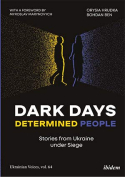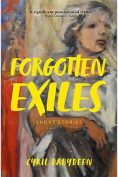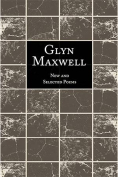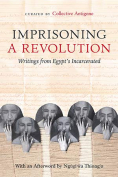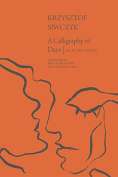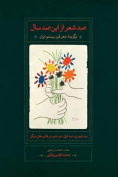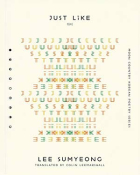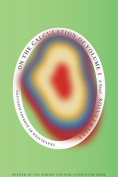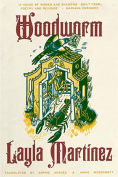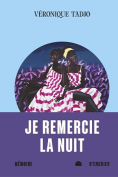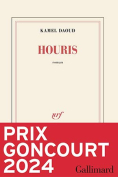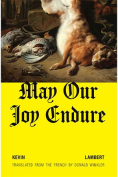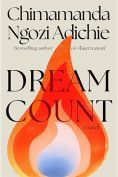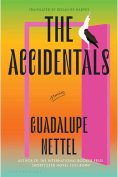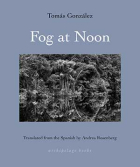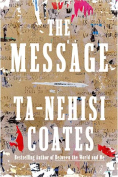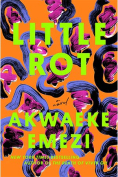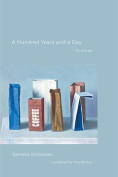Alligator Tears: A Memoir in Essays by Edgar Gomez
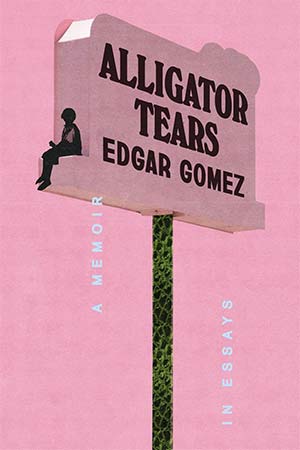
New York. Crown. 2025. 256 pages.
What does a sixty-four-year-old gay, white college professor and literary translator who grew up in small-town Oklahoma have in common with a thirty-two-year-old queer Latinx memoirist raised in Orlando, Florida? At first glance, other than being neighbors on the LGBTQ acronym, not much.
As I started to read Alligator Tears, Edgar Gomez’s new memoir, however, I discovered that Gomez and I have more in common than one might imagine. Like Gomez, whose mother got up before daylight to work as a barista at Starbucks to support her two sons, I had a mother who trudged twenty miles every morning each way to work as a waitress at Denny’s so I could have a better life than she did. And also like Gomez, I struggled every day, from a very early age, with the realization that I was different than the other boys. Without being able to put a name to it, we knew that it was something to hide, because the world was hostile to “girly-boys” like us. To my surprise and delight, Alligator Tears made this aging queen smile, giggle, chortle, snort, tear up, and ugly cry. Just pages in, I found myself rooting for Gomez the way people root for the underdog in cheesy rom-coms, a favorite movie genre of the young memoirist.
Alligator Tears isn’t preppy-posh like Andrew Tobias’s The Best Little Boy in the World or gritty-chic like Bill Clegg’s Portrait of an Addict as a Young Man. It belongs to a recent spate of BIPOC, Latinx, and LGBTQ memoirs that are long overdue. Comprised of ten (linked) essays—spanning the author’s childhood and adolescence in Orlando and nascent adulthood in New York, with stops along the way in Puerto Rico, Nicaragua, and California, each life stage littered with intersecting minefields—Alligator Tears is equal parts memoir and manifesto, touching on themes of identity, family, the precarities facing trans people, especially those of color, systems of poverty, the complex nature of Latinidad, and, of course, coming out.
Alligator Tears also offers a welcome critique of the publishing industry. In the essay “Everything We Ever Wanted,” Gomez observes, “I quickly learned that the industry is dominated by wealthy people who have the spare time to write and prior connections, that only 16 percent of all books published in the United States were by LGBTQIA+ authors, and just 6 percent by Latin ones, leaving me guessing how many intersected with both, and that those few of us lucky to make it then had to contend with book bans and rising censorship across the country. Which is to say that by the end of my first year [of MFA], I was well aware that it’d take a miracle for me to become an author.” Other essays have titles like “Orlando Royalty,” “Kids with Guns,” “Papi Issues,” and “My Body of Work,” the latter beginning: “The first time was in high school. I was a junior. Sixteen or seventeen.” Spoiler alert: None of these essays are about what the titles seem to suggest . . . at least not entirely.
“Poignant” is perhaps the most clichéd adjective used to describe memoirs—best-selling memoirist Javier Zamora, of whose memoir Solito Gomez professes on Instagram to be a “huge fan,” uses it in his blurb for Alligator Tears—but in this case the descriptor is an apt one. Particularly poignant is Gomez’s recollection in “My Body of Work” of the massacre at Orlando’s Pulse nightclub, where Gomez and his besties, Luis and Arturo, were frequent patrons. He writes: “I cried and cried and cried. My chest heavy, all the tears I’d been carrying inside of me pouring out. I cried, thinking of all the people who’d gone to Pulse to have a break, to take the night off, and how some man . . . some man had killed them. I cried because somehow I’d underestimated how much the world hated us.”
No less heartrending are moments of vulnerability, such as when the author discusses getting veneers as a teenager: “I’d been obsessed with my teeth since the fifth grade, when being gap-tooth stopped being cute, and the kids with naturally straight teeth started pairing off to preserve their superior evolutionary lines.” A not-too-surprising feature of Gomez’s narrative are occasional words and phrases in Spanish, which lend an endearing quality: “‘Levantese,’ Hector pleaded at Mom. ‘Wake up! Don’t go to sleep!’” (The missing accent marks on “levántese” and elsewhere were disappointing to this reader, but I cavil.)
You can tell a lot about a book by the epigraphs an author chooses. For Alligator Tears, Gomez has chosen exquisitely: “What cannot be said will be wept” (Sappho) and “I wanna be wealthy, if not wealthy content. I wanna be somebody, I mean I am somebody. I just wanna be a rich somebody” (Octavia St. Laurent, Paris Is Burning). That Gomez can quote both Sappho and the 1990 documentary on Black ball culture in 1980s New York is a testament to his literary and queer culture bona fides.
Gomez’s debut memoir, High-Risk Homosexual (2022)—which I also highly recommend—earned the NicaRican author the American Book Award, the Lambda Literary Award for gay memoir/biography, and the Stonewall–Israel Fishman Non-Fiction Honor Award. His ascent from independent Soft Skull to Crown, an imprint of Penguin Random House, is proof that his star is rising. A recipient of a coveted National Endowment for the Arts creative writing fellowship in 2024, Gomez, who now lives between New York and Puerto Rico, may not be a household name—yet—but how many memoirists are?
In the essay “My Boyfriend, His Lover, and Me,” Gomez writes: “I am a memoirist. There is nothing I want more than a happy ending.” When you finish reading this beautifully crafted memoir, and I hope you do, my guess is you’ll believe—as I do—that a happy ending, as in the rom-coms Gomez grew up watching, is just over the horizon.
George Henson
Middlebury Institute of International Studies




